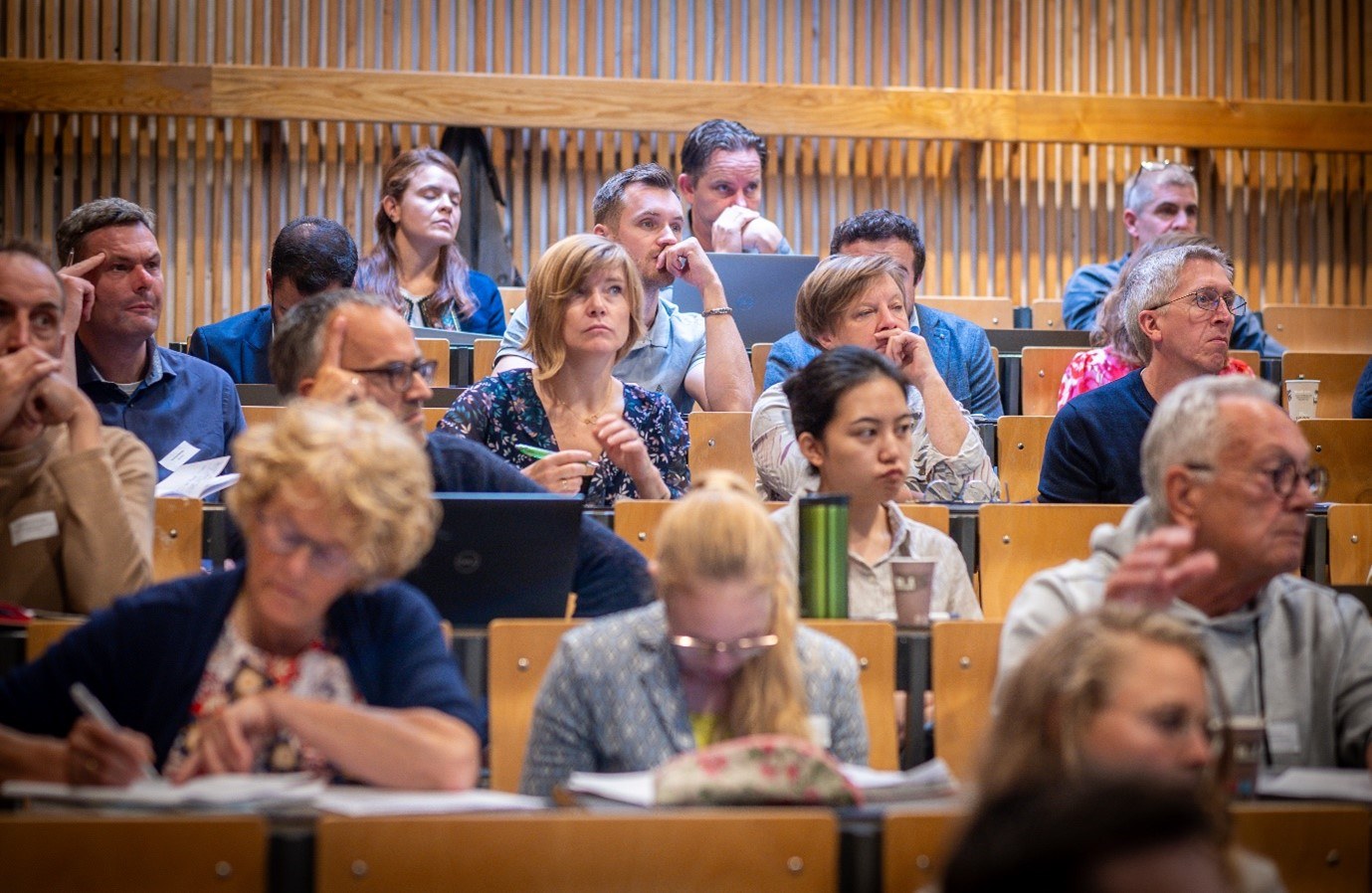The 10th International Meuse Symposium in Liège
The International Meuse Symposium is a conference where scientists exchange knowledge on water-related topics. There are hundreds water conferences every year - what makes this conference unique is the Meuse basin as central topic and the open character of the symposium. Everyone who is interested in the Meuse or its catchment can attend, and what is presented in talks and posters is basically relevant for the participants, because it happens in their “home catchment.

At 10 September 2024 the 10th edition of the International Meuse Symposium took place at the Sart-Tilman campus of the University of Liège. More than 100 scientists, water managers and stakeholders came together. This large number of participants shows the growing interest for the symposium series. The International Meuse Symposium has become a fixed date in the ‘hydrological year’ of the Meuse.
Need for better understanding
Bernhard Becker, Deltares researcher and initiator of the International Meuse Symposium: "Around ten years ago, we identified the need for a better understanding of water-related processes and water management in the Meuse catchment. For the Netherlands as the most downstream riparian country, it is of high importance to have a sound understanding of the hydrological processes in the basin – not only for operational flood and drought forecasting, but also for strategic water management."

Bernhard continues: "I had just started at Deltares in the Netherlands, before I worked at RWTH Aachen University in Germany and I had spent a research visit at the Université de Liège. Having worked at three research organizations in the Meuse catchment brought me to the idea of organizing a conference to exchange knowledge on a scientific basis – and I could use my network to make it happen. The EU-funded AMICE project took place at that time, and people reacted positive on organizing a ‘mini symposium on hydrological modelling of the Meuse basin’ to exchange knowledge.”
Water quality and water quantity
"To the HECE group of University of Liège we owe large part of our success for welcoming us on their campus every year. In 2023 the Schone Maaswaterketen joined the organizing committee. We work with two parallel programmes since then to provide an integrated view on both water quality and water quantity. We see the International Meuse Symposium as an additional element that accompanies the official river commissions, committees and working groups: The International Meuse Symposium is not limited to delegates of organizations or countries."
"Furthermore, the topics that are discussed come from the participants. Some contributions have a strong scientific content, others focus on practice. With our symposium people have a platform to discuss topics they find important – in the conference room or during the coffee break. We believe that many international projects and initiatives have already benefited from the International Meuse Symposium. One example is the JCAR-ATRACE project. This project aims to improve the international cooperation on flood and drought management and research."
Extreme droughts
This year Deltares organized a second event for the Meuse community: the Meuse Hackathon on extreme droughts was organized by Esmée Mes (Deltares) and moderated by Sophie Vermooten (Deltares) the day after. Again, the Université de Liège kindly hosted the hackaton on their premises.
All riparian countries
Bernhard: "For me the presentations and posters from the different editions of the International Meuse Symposium have become an important source of knowledge, and during the symposium they provide important impulses to science and apply the findings into practice. The presentations show that the different riparian countries face similar problems now and in future. It is great to see that people in all riparian countries (France, Belgium, Germany and the Netherlands) are working on solutions and measures to improve flood safety, to make the Meuse cleaner, to meet the water demand from various use functions and to improve biodiversity. But we are not there yet, and the future comes with big challenges."
You have not yet indicated whether you want to accept or reject cookies. This means that this element cannot be displayed.
Or go directly to:
Photos: Maarten de Penning
